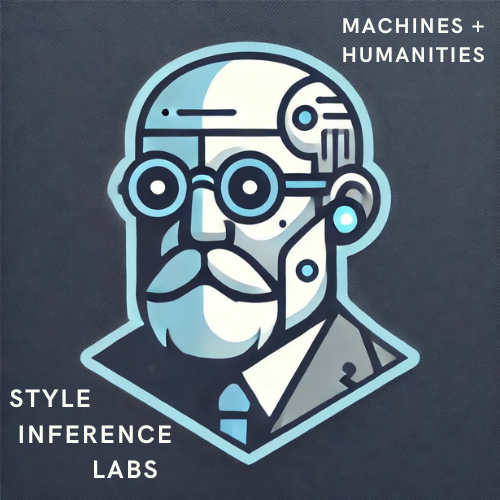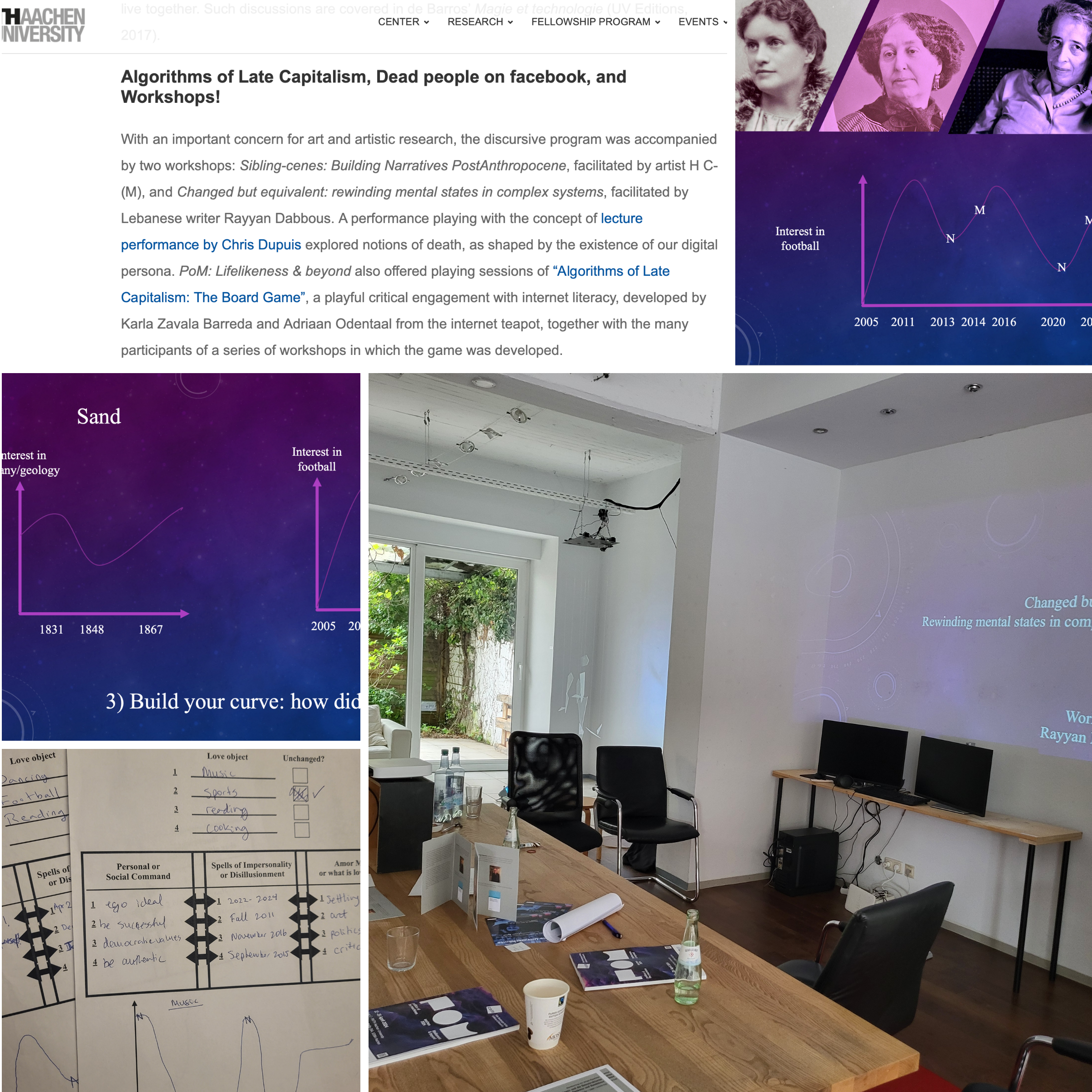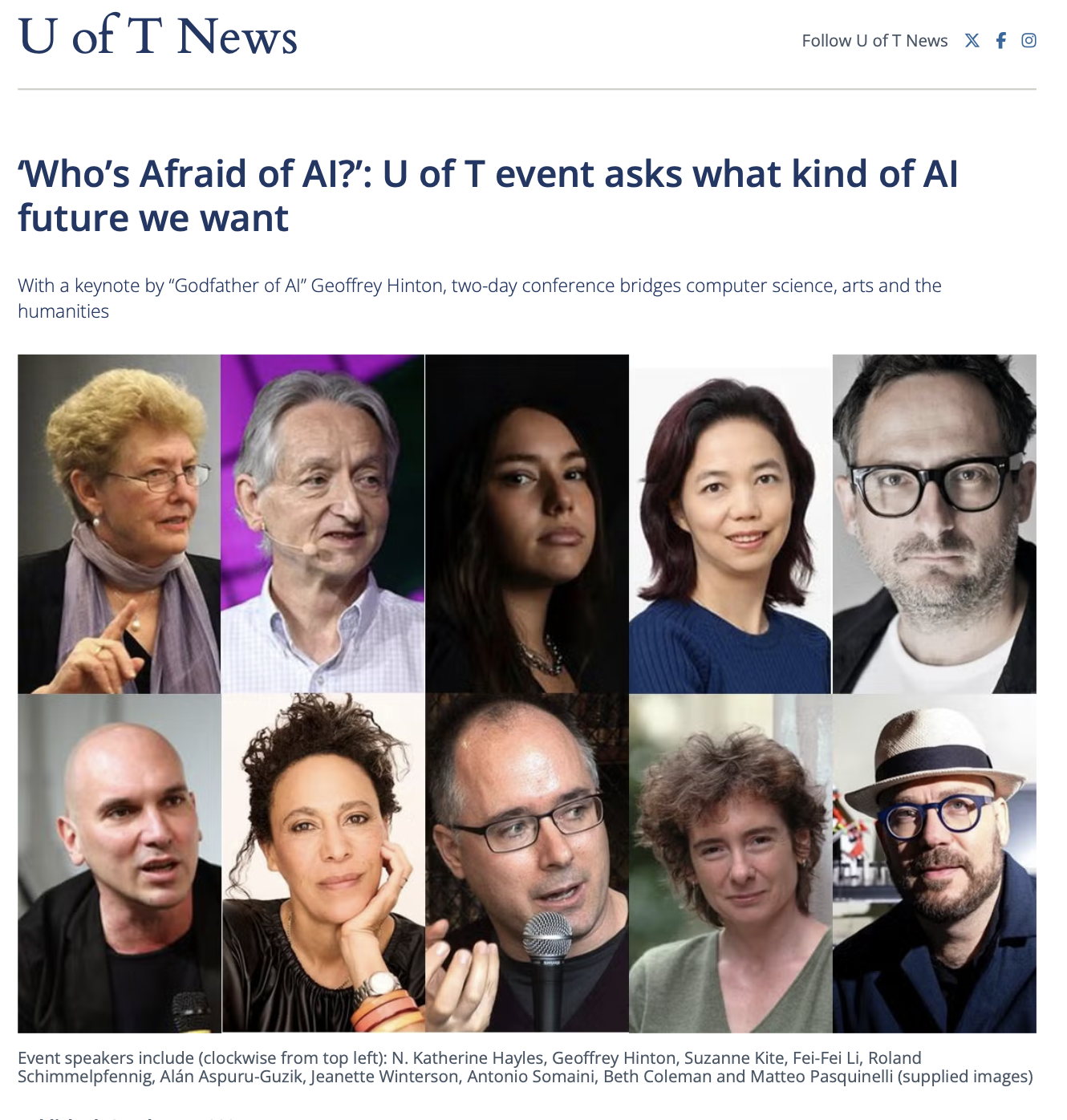Our first workshop delivered at RWTH Aachen University in Germany, as part of the 4th Politics of the Machines conference in April 2024.
This workshop helped participants understand the evolution of their relationship to their own hobbies. Why did they ignore them for long periods of time, only to eventually return to them? What role did their conscious priorities and unconscious instincts play in that evolution? Participants mapped out this deeper relationship to themselves and their hobbies through curves and historical timelines. They were exposed to digestible snippets of the works of George Sand, Lou Andreas-Salomé, and Hannah Arendt, three women thinkers who were foundational for style inference.
Participants reported being surprised by the format of the workshop and the attention paid to deeper processes of human experience. They found it refreshing that the worksheets did not ask them questions for which they already knew the answer. They took every minute of the moment given to them to reflect on their own and they liked the fact that no personal selfish fact was embarrassing since everyone came forward with an honest look about their wants and aspirations. One participant in particular reported enjoying recalling parts of their past they haven’t had time to think about.
Who’s Afraid of AI? Arts, Sciences, and the Futures of Intelligence, a global conference at University of Toronto in October 2025
Since the workshop in Aachen, our founder Rayyan Dabbous teamed up with Pia Kleber, David Rokeby, and Dirk Bernhardt-Walther to co-organize an international conference with talks & conversations between ‘godparents’ of AI Geoffrey Hinton (2025 Nobel Prize Laureate in Physics) and Fei-Fei Li (Stanford Institute for Human-Centered AI) as well as renowned artists and philosophers including Jeanette Winterson (12 Bytes: How AI Will Change the Way We Live and Love), N. Katherine Hayles (How We Became Posthuman), Matteo Pasquinelli (The Eye of the Master: A Social History of Artificial Intelligence) and more influential figures from around the world.
The conference’s interdisciplinary dialogue and its emphasis on the role of the humanities in shaping our technological future match our commitment at Style Inference Labs to do the same. After the conference, Rayyan returned to delivering workshops at the University of Toronto that create a similar atmosphere of collective thinking.


